16 start with B start with B
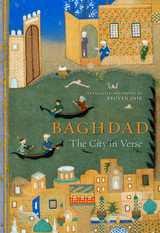
Baghdad: The City in Verse captures the essence of life lived in one of the world’s great enduring metropolises. In this unusual anthology, Reuven Snir offers original translations of more than 170 Arabic poems—most of them appearing for the first time in English—which represent a cross-section of genres and styles from the time of Baghdad’s founding in the eighth century to the present day. The diversity of the fabled city is reflected in the Bedouin, Muslim, Christian, Kurdish, and Jewish poets featured here, including writers of great renown and others whose work has survived but whose names are lost to history.
Through the prism of these poems, readers glimpse many different Baghdads: the city built on ancient Sumerian ruins, the epicenter of Arab culture and Islam’s Golden Age under the enlightened rule of Harun al-Rashid, the bombed-out capital of Saddam Hussein’s fallen regime, the American occupation, and life in a new but unstable Iraq. With poets as our guides, we visit bazaars, gardens, wine parties, love scenes (worldly and mystical), brothels, prisons, and palaces. Startling contrasts emerge as the day-to-day cacophony of urban life is juxtaposed with eternal cycles of the Tigris, and hellish winds, mosquitoes, rain, floods, snow, and earthquakes are accompanied by somber reflections on invasions and other catastrophes.
Documenting the city’s 1,250-year history, Baghdad: The City in Verse shows why poetry has been aptly called the public register of the Arabs.
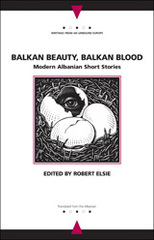
Albania's more established writers (including Dritëro Agolli, Ismail Kadare, Teodor Laço, and Eqrem Basha) appear here alongside newer talents (such as Ylljet Aliçka, Mimoza Ahmeti, Elivra Dones, Lindita Arapi, and Kim Mehmeti), providing English-speaking readers with an elucidating and entertaining overview of the recent history, and the future, of the nation's literature.
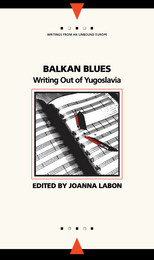
Contributors: Dubravka Ugrešić, Bogdan Bogdanović, Dragan Velikić, Danilo Kiš, Drago Jančar, Mirko Kovač, Goran Stefanovski, Dževad Karahasan, and Slobodan Blagojević.
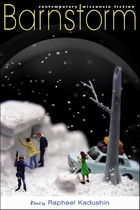
Not for sale in the United Kingdom.
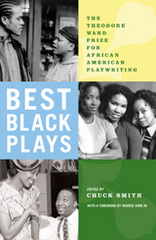
Carefully selected by a director and educator who has been affiliated with the contest for eighteen of its twenty years, these three works have themes that range from the sordid shenanigans of a Depression-era "South Side Burial Society" (Leslie Lee's Sundown Names and Night-Gone Things) to a single mother's heartbreaking battle to save her children's souls (Mark Clayton Southers' Ma Noah) to a poignant and achingly funny reunion of three sisters after their parents' death (Kim Euell's The Diva Daughters DuPree). Their publication answers a growing demand for the work of African American playwrights even as it affords deep and varied insights into African American culture in our era.
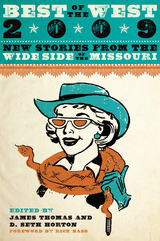
Best of the West: New Stories from the Wide Side of the Missouri, an annual anthology of exceptional short fiction rooted in the western United States, debuted in 1988 and continued publication until 1992. Recognizing that the West remains rewarding territory for literary explorations, James Thomas and Seth Horton are now reviving the series in Best of the West 2009.
Thomas and Horton combed some 250 literary journals and magazines to gather these eighteen stories published since the fall of 2007. They come from both emerging and established writers, including Lee K. Abbott, Louise Erdrich, Dagoberto Gilb, Antonya Nelson, Joyce Carol Oates, and Annie Proulx. Like Bass, the editors believe "the Western short story" inhabits a wide territory; the subjects in this collection range from illegal immigrants tending illegal crops in California's national forests, to mismatched Mormon missionaries on the conversion trail in Nevada, to a Native American college student exploring her sexuality, to Papa Hemingway's meditations as he loads the shotgun in his Idaho cabin. As these stories make clear, the West continues to shape our literary landscape. Thomas and Horton have preserved the best of that work in this vital anthology.
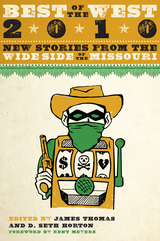
Best of the West: New Stories from the Wide Side of the Missouri, an annual anthology of exceptional short fiction rooted in the western United States, debuted in 1988 and continued publication until 1992. Recognizing that the West remains rewarding territory for literary explorations, James Thomas and D. Seth Horton revived the series in 2009.
Best of the West 2010 brings together established and emerging writers who reinterpret this most vital of literary regions and create, as Kent Meyers puts it in his foreword, "gift[s] the nation needs right now." Editors Horton and Thomas have chosen nineteen stories by writers including Sherman Alexie, Rick Bass, Ron Carlson, Julia Glass, William Kittredge, Kent Nelson, and Deb Olin Unferth. Their subjects vary from a Greek community in Wyoming dealing with a suicide, to a re-creation of Christ's crucifixion in New Mexico, to an unlikely friendship that peaks at a burial ground in Alaska. Best of the West 2010 is the latest indication that the West has become one of the most crucial settings for contemporary American fiction.
Contributors:
- Sherman Alexie
- Rick Bass
- John Blanchard
- Elea Carey
- Ron Carlson
- Natalie Diaz
- Darren Dillman
- Ben Ehrenreich
- Julia Glass
- Dina Guidubaldi
- Ben Kostival
- William Kittredge
- Paul Mihas
- Kent Nelson
- Daniel Orozco
- Kirstin Valdez Quade
- Aurelie Sheehan
- Justin St. Germain
- Deb Olin Unferth
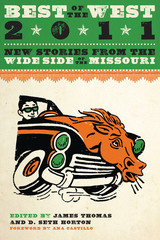
Best of the West: New Stories from the Wide Side of the Missouri, an annual anthology of exceptional short fiction rooted in the western United States, debuted in 1988 and continued publication until 1992. Recognizing that the West remains rewarding territory for literary explorations, James Thomas and D. Seth Horton revived the series in 2009.
Best of the West 2011: New Stories from the Wide Side of the Missouri is the latest volume in what has become one of the nation's most important anthologies. Editors Horton and Thomas have chosen twenty stories by writers including Rick Bass, T. C. Boyle, Ron Carlson, Philipp Meyer, Dagoberto Gilb, Yiyun Li, Antonya Nelson, and Sam Shepard. Subjects vary from an Idaho family that breeds lions and tigers with disastrous results, to a Mormon veteran whose mind is taken over by a nineteenth-century consciousness, to a Texas boy who spends an afternoon with Bonnie and Clyde shortly before their deaths. Taken together, these stories suggest that the West has become one of the most exciting and diverse literary regions in the twenty-first century.
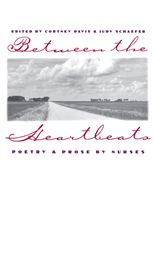
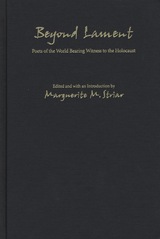
Editor Marguerite M. Striar has arranged the nearly 300 poems in this volume to tell the story beginmning with the early premonitions of Nazi evil in 1933, through the course of the unthinkable violence that ended in 1945 with Hitler's demise, to the flourishing of concern for human rights in the aftermath of the Holocaust. These works by well-known poets such as Paul Celan, Nelly Sachs, Czeslaw Milosz, Dannie Abse, and Robert Pinsky, as well as many lesser-known or unknown poets, show how poetry makes history memorable, confirm the resiliance of the human spirit, and prove that even in the fact of great suffering, the flame of creation will not be extinguished.

Bringing together Czech fiction published by women between 1890 and 1910, Beyond the World of Men presents works that confront pivotal issues of the time, including the “woman question” and women’s rights, class conflict, lesbian love, and the relationship between the aristocracy and the Czech peasantry (as in two stories originally written in German by the aristocrat Marie von Ebner-Eschenbach). The collection contains stories that are of literary merit, but also hold historical value. In these works, the authors offer trenchant social commentary while injecting both comic and sentimental elements into their writing, employing humanity and subtlety.
As a whole, the collection suggests a revision of the critical understanding of Czech literary modernism; these writers represent voices that were not usually heard in the male writing of the period. They also demand evaluation in their differing (but constant) reactions to earlier women’s writing in Czech and in other European languages, but particularly that of the central figure of Božena Nemcová, to whose canonic novel Babicka they constantly return.
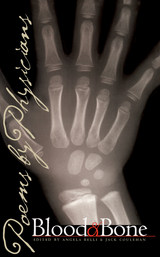


Where were you between Betty Crocker and Gloria Steinem? With that question in mind poets Pamela Gemin and Paula Sergi began collecting the poems in Boomer Girls, an anthology of coming-of-age poems written by women born between 1945 and 1964, give or take a few years on either side. The answers to that question fill this volume with the energy, passion, heartbreak, and giddiness of women's lives from childhood to adolescence to middle age.
The poems in Boomer Girls are by unknown, emerging, and established writers, women who participated in the second wave of feminism. From Sandra Cisneros' "My Wicked Wicked Ways" to Barbara Crooker's "Nearing Menopause, I Run into Elvis at Shoprite," from Wendy Mnookin's "Polio Summer" to Kyoko Mori's "Barbie Says Math Is Hard," these poems call for us to celebrate (in the words of poet Diane Seuss-Brakeman) "glances, romances, beauty and guilt, regret, remorse, rebates and rejuvenations."
Boomer Girls share a common culture, bound by their generation's political history, by pop icons like Barbie—that pedestaled Boomer Girl who's just turned forty—and by the music that's never stopped playing: Janis Joplin, Marvin Gaye, Jimi Hendrix, the Ronettes, Van Morrison, Patsy Cline, John Lennon. The Boomer poets in this feisty anthology speak with diverse voices and embody a wide range of experiences, yet their generation's universal images—the hula hoops, TV shows, finned automobiles, and other household gods of their youth—unite them in ways both hilarious and tender.
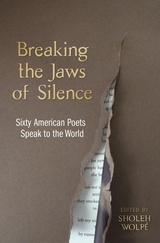
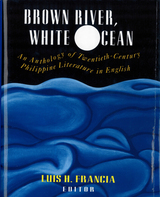
READERS
Browse our collection.
PUBLISHERS
See BiblioVault's publisher services.
STUDENT SERVICES
Files for college accessibility offices.
UChicago Accessibility Resources
home | accessibility | search | about | contact us
BiblioVault ® 2001 - 2024
The University of Chicago Press









